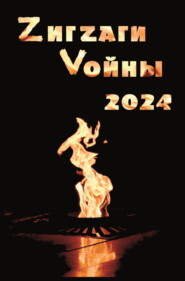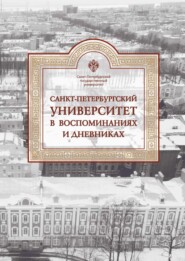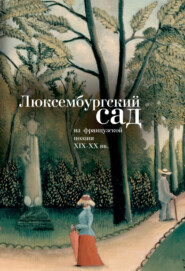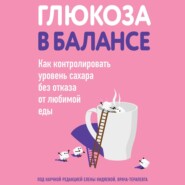По всем вопросам обращайтесь на: info@litportal.ru
(©) 2003-2024.
✖
Literary and Philosophical Essays: French, German and Italian
Настройки чтения
Размер шрифта
Высота строк
Поля
Quid quisque vitet, nunquam homini satis
Cautum est in horas
[Footnote: Hor. 1. ii. Od. xiii. 13.]
A man can never take good heed,
Hourely what he may shun and speed.
I omit to speak of agues and pleurisies; who would ever have imagined that a Duke of Brittanie should have beene stifled to death in a throng of people, as whilome was a neighbour of mine at Lyons, when Pope Clement made his entrance there? Hast thou not seene one of our late Kings slaine in the middest of his sports? and one of his ancestors die miserably by the chocke [Footnote: Shock.] of an hog? Eschilus fore threatned by the fall of an house, when he stood most upon his guard, strucken dead by the fall of a tortoise shell, which fell out of the tallants of an eagle flying in the air? and another choaked with the kernell of a grape? And an Emperour die by the scratch of a combe, whilest he was combing his head? And Aemylius Lepidus with hitting his foot against a doore-seele? And Aufidius with stumbling against the Consull-chamber doore as he was going in thereat? And Cornelius Gallus, the Praetor, Tigillinus, Captaine of the Romane watch, Lodowike, sonne of Guido Gonzaga, Marquis of Mantua, end their daies betweene womens thighs? And of a farre worse example Speusippus, the Platonian philosopher, and one of our Popes? Poore Bebius a Judge, whilest he demurreth the sute of a plaintife but for eight daies, be hold, his last expired: And Caius Iulius a Physitian, whilest he was annointing the eies of one of his patients, to have his owne sight closed for ever by death. And if amongst these examples, I may adde one of a brother of mine, called Captain Saint Martin, a man of three and twentie yeares of age, who had alreadie given good testimonie of his worth and forward valour, playing at tennis, received a blow with a ball, that hit him a little above the right eare, without apparance of any contusion, bruse, or hurt, and never sitting or resting upon it, died within six houres after of an apoplexie, which the blow of the ball caused in him. These so frequent and ordinary examples, hapning, and being still before our eies, how is it possible for man to forgo or for get the remembrance of death? and why should it not continually seeme unto us, that shee is still ready at hand to take us by the throat? What matter is it, will you say unto me, how and in what manner it is, so long as a man doe not trouble and vex himselfe therewith? I am of this opinion, that howsoever a man may shrowd or hide himselfe from her dart, yea, were it under an oxe-hide, I am not the man would shrinke backe: it sufficeth me to live at my ease; and the best recreation I can have, that doe I ever take; in other matters, as little vain glorious, and exemplare as you list.
– praetulerim delirus inersque videri,
Dum mea delectent mala me, vel denique fallant,
Quam sapere et ringi
[Footnote: Hor. 1. ii. Episi. ii 126]
A dotard I had rather seeme, and dull,
Sooner my faults may please make me a gull,
Than to be wise, and beat my vexed scull.
But it is folly to thinke that way to come unto it. They come, they goe, they trot, they daunce: but no speech of death. All that is good sport. But if she be once come, and on a sudden and openly surprise, either them, their wives, their children, or their friends, what torments, what out cries, what rage, and what despaire doth then overwhelme them? saw you ever anything so drooping, so changed, and so distracted? A man must looke to it, and in better times fore-see it. And might that brutish carelessenesse lodge in the minde of a man of understanding (which I find altogether impossible) she sels us her ware at an overdeere rate: were she an enemie by mans wit to be avoided, I would advise men to borrow the weapons of cowardlinesse: but since it may not be, and that be you either a coward or a runaway, an honest or valiant man, she overtakes you,
Nempe et fugacem persequitur virum,
Nec parcit imbellis juventae
Poplitibus, timidoque tergo.
[Footnote: Hor. 1. iii. Od. ii. 14.]
Shee persecutes the man that flies,
Shee spares not weake youth to surprise,
But on their hammes and backe turn'd plies.
And that no temper of cuirace [Footnote: Cuirass.] may shield or defend you,
Ille licet ferro cauius se condat et aere,
Mors tamen inclusum protraket inde caput.
[Footnote: Propert. 1. iii. et xvii. 5]
Though he with yron and brasse his head empale,
Yet death his head enclosed thence will hale.
Let us learne to stand, and combat her with a resolute minde. And being to take the greatest advantage she hath upon us from her, let us take a cleane contrary way from the common, let us remove her strangenesse from her, let us converse, frequent, and acquaint our selves with her, let us have nothing so much in minde as death, let us at all times and seasons, and in the ugliest manner that may be, yea with all faces shapen and represent the same unto our imagination. At the stumbling of a horse, at the fall of a stone, at the least prick with a pinne, let us presently ruminate and say with our selves, what if it were death it selfe? and thereupon let us take heart of grace, and call our wits together to confront her. Amiddest our bankets, feasts, and pleasures, let us ever have this restraint or object before us, that is, the remembrance of our condition, and let not pleasure so much mislead or transport us, that we altogether neglect or forget, how many waies, our joyes, or our feastings, be subject unto death, and by how many hold-fasts shee threatens us and them. So did the AEgyptians, who in the middest of their banquetings, and in the full of their greatest cheere, caused the anatomie [Footnote: Skeleton] of a dead man to be brought before them, as a memorandum and warning to their guests.
Omnem crede diem tibi diluxisse supremum,
Grata superveniet; quae non sperabitur, hora?
[Footnote: Hor. 1. i. Epist. iv. 13.]
Thinke every day shines on thee as thy last,
Welcome it will come, whereof hope was past.
It is uncertaine where death looks for us; let us expect her everie where: the premeditation of death, is a forethinking of libertie. He who hath learned to die, hath unlearned to serve. There is no evill in life, for him that hath well conceived, how the privation of life is no evill. To know how to die, doth free us from all subjection and constraint. Paulus AEmilius answered one, whom that miserable king of Macedon his prisoner sent to entreat him he would not lead him in triumph, "Let him make that request unto himselfe." Verily, if Nature afford not some helpe in all things, it is very hard that art and industrie should goe farre before. Of my selfe, I am not much given to melancholy, but rather to dreaming and sluggishness. There is nothing wherewith I have ever more entertained my selfe, than with the imaginations of death, yea in the most licentious times of my age.
Iucundum, cum atas florida ver ageret
[Footnote: Catul. Eleg. iv. 16.]
When my age flourishing
Did spend its pleasant spring.
Being amongst faire Ladies, and in earnest play, some have thought me busied, or musing with my selfe, how to digest some jealousie, or meditating on the uncertaintie of some conceived hope, when God he knowes, I was entertaining my selfe with the remembrance of some one or other, that but few daies before was taken with a burning fever, and of his sodaine end, comming from such a feast or meeting where I was my selfe, and with his head full of idle conceits, of lore, and merry glee; supposing the same, either sickness or end, to be as neere me as him.
Iam fuerit, nec post, unquam revocare licebit.
[Footnote: Lucr. I. iii. 947.]
Now time would be, no more You can this time restore.
I did no more trouble my selfe or frowne at such conceit, [Idea.] than at any other. It is impossible we should not apprehend or feele some motions or startings at such imaginations at the first, and comming sodainely upon us; but doubtlesse, he that shall manage and meditate upon them with an impartiall eye, they will assuredly, in tract [Course.] of time, become familiar to him: Otherwise, for my part, I should be in continuall feare and agonie; for no man did ever more distrust his life, nor make lesse account of his continuance: Neither can health, which hitherto I have so long enjoied, and which so seldome hath beene crazed, [Enfeebled.] lengthen my hopes, nor any sicknesse shorten them of it. At every minute me thinkes I make an escape. And I uncessantly record unto my selfe, that whatsoever may be done another day, may be effected this day. Truly hazards and dangers doe little or nothing approach us at our end: And if we consider, how many more there remaine, besides this accident, which in number more than millions seeme to threaten us, and hang over us; we shall find, that be we sound or sicke, lustie or weake, at sea or at land, abroad or at home, fighting or at rest, in the middest of a battell or, in our beds, she is ever alike neere unto us. Nemo altero fragilior est, nemo in crastinum sui certior: "No man is weaker then other; none surer of himselfe (to live) till to morrow." Whatsoever I have to doe before death, all leasure to end the same seemeth short unto me, yea were it but of one houre. Some body, not long since turning over my writing tables, found by chance a memoriall of something I would have done after my death: I told him (as indeed it was true), that being but a mile from my house, and in perfect health and lustie, I had made haste to write it, because I could not assure my self I should ever come home in safety: As one that am ever hatching of mine owne thoughts, and place them in my selfe: I am ever prepared about that which I may be: nor can death (come when she please) put me in mind of any new thing. A man should ever, as much as in him lieth, be ready booted to take his journey, and above all things, looke he have then nothing to doe but with himselfe.
Quid brevi fortes jaculamur aevo
Multa:
[Footnote: Hor. 1. ii. Od. Xiv]
To aime why are we ever bold,
At many things in so short hold?
For then we shall have worke sufficient, without any more accrease. Some man complaineth more that death doth hinder him from the assured course of an hoped for victorie, than of death it selfe; another cries out, he should give place to her, before he have married his daughter, or directed the course of his childrens bringing up; another bewaileth he must forgoe his wives company; another moaneth the losse of his children, the chiefest commodities of his being. I am now by meanes of the mercy of God in such a taking, that without regret or grieving at any worldly matter, I am prepared to dislodge, whensoever he shall please to call me: I am every where free: my farewell is soone taken of all my friends, except of my selfe. No man did ever pre pare himselfe to quit the world more simply and fully, or more generally spake of all thoughts of it, than I am assured I shall doe. The deadest deaths are the best.
– Miser, de miser (aiunt) omnia ademit.
Vna dies infesta mihi tot praemia vitae:
[Footnote: Luce. 1. iii. 941.]
O wretch, O wretch (friends cry), one day,
All joyes of life hath tane away:
And the builder,
– manent (saith he) opera interrupta, minaeque Murorum ingentes.
[Footnote: Virg. Aen. 1. iv. 88.]
The workes unfinisht lie,
And walls that threatned hie.
A man should designe nothing so long afore-hand, or at least with such an intent, as to passionate[Footnote: Long passionately.] himselfe to see the end of it; we are all borne to be doing.
Cum moriar, medium solvar et inter opus
[Footnote: Ovid. Am. 1. ii. El. x. 36]
When dying I my selfe shall spend,
Ere halfe my businesse come to end.
I would have a man to be doing, and to prolong his lives offices as much as lieth in him, and let death seize upon me whilest I am setting my cabiges, carelesse of her dart, but more of my unperfect garden. I saw one die, who being at his last gaspe, uncessantly complained against his destinie, and that death should so unkindly cut him off in the middest of an historie which he had in hand, and was now come to the fifteenth or sixteenth of our Kings.
Illud in his rebus non addunt, nec tibi earum,

















